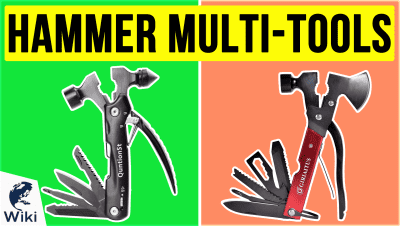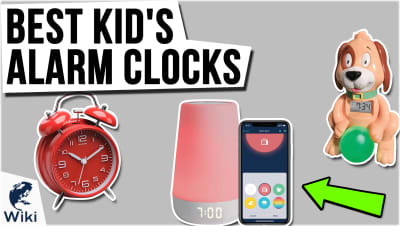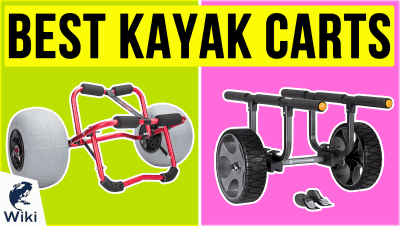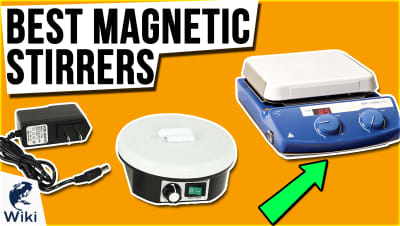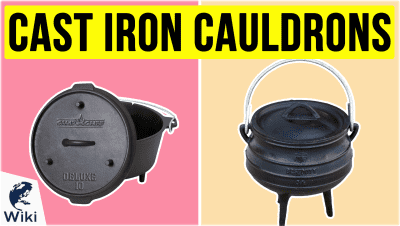5 Organizations And Individuals Advocating For Those With Down Syndrome
Down syndrome is one of the most common and well-known chromosome disorders, and it occurs in about one in every seven hundred babies born. The condition can seem scary at first, and information and support can be a big help for parents who want the best for their children. The organizations and individuals listed here do everything from advocating for representation to providing effective learning techniques. This video was made with Ezvid Wikimaker.
People & Groups Supporting Those With Down Syndrome
| Name | Description |
|---|---|
| Gigi's Playhouse | Network of Down Syndrome Achievement Centers with locations across the United States and Mexico |
| Sarah Gordy | Actor, dancer, and model who refuses to let Down Syndrome define her |
| Global Down Syndrome Foundation | Organization dedicated to improving the lives of those impacted by Down syndrome |
| Mardra Sikora | Writer and speaker who advocates for the rights and dignity of those living with Down syndrome |
| Jack's Basket | Nonprofit dedicated to celebrating babies with Down syndrome |
What Is Down Syndrome?
According to the CDC, Down syndrome is a condition in which a person has an extra chromosome. Chromosomes are small “packages” of genes in the body. They determine how a baby’s body forms during pregnancy and how the baby’s body functions as it grows in the womb and after birth. Typically, a baby is born with 46 chromosomes. Babies with Down syndrome have an extra copy of one of these chromosomes, chromosome 21. A medical term for having an extra copy of a chromosome is ‘trisomy.’ Down syndrome is also referred to as Trisomy 21. This extra copy changes how the baby’s body and brain develop, which can cause both mental and physical challenges for the baby.
Is There A Tomorrow For People With Down Syndrome?
Common Physical Features Of Down Syndrome
- A flattened face, especially the bridge of the nose
- Almond-shaped eyes that slant up
- A short neck
- Small ears
- A tongue that tends to stick out of the mouth
- Tiny white spots on the iris (colored part) of the eye
- Small hands and feet
- A single line across the palm of the hand (palmar crease)
- Small pinky fingers that sometimes curve toward the thumb
- Poor muscle tone or loose joints
- Shorter in height as children and adults
Types Of Down Syndrome
There are three types of Down syndrome. People often can't tell the difference between each type without looking at the chromosomes because the physical features and behaviors are similar.
- Trisomy 21: About 95% of people with Down syndrome have Trisomy 21. With this type of Down syndrome, each cell in the body has 3 separate copies of chromosome 21 instead of the usual 2 copies.
- Translocation Down syndrome: This type accounts for a small percentage of people with Down syndrome (about 3%). This occurs when an extra part or a whole extra chromosome 21 is present, but it is attached or “trans-located” to a different chromosome rather than being a separate chromosome 21.
- Mosaic Down syndrome: This type affects about 2% of the people with Down syndrome. Mosaic means mixture or combination. For children with mosaic Down syndrome, some of their cells have 3 copies of chromosome 21, but other cells have the typical two copies of chromosome 21. Children with mosaic Down syndrome may have the same features as other children with Down syndrome. However, they may have fewer features of the condition due to the presence of some (or many) cells with a typical number of chromosomes.
The Causes, Symptoms, Diagnosis, & Pathology Of Down Syndrome
In Depth
For parents learning that their child has trisomy 21, commonly known as Down syndrome, facing the difficulties ahead of them can seem daunting. But thanks to a growing number of dedicated advocates and support organizations, people with this condition are increasingly able to lead happy, fulfilling lives. Presented here, in no particular order, are five individuals and groups offering assistance to those affected by Down syndrome.
Leading off at #1 is Gigi's Playhouse, a network of Down Syndrome Achievement Centers with locations across the United States and Mexico. Founded by a mother determined to help her daughter and those with similar conditions lead fulfilling lives, this organization offers a range of developmental services. Their programs include individualized tutoring in literacy and math, physical therapy, and coaching through the Amina Grace Speech and Language Program.
Gigi's Playhouse seeks to make learning entertaining for participants and provide information for families about effective teaching techniques for those with Down syndrome. Their programs support students throughout their lives, including offering Career Development Programs to help them find vocations as adults. And their Generation G campaign works to raise awareness and fight stereotypes. Those interested in supporting this organization can donate or help as volunteers.
Their programs support students throughout their lives, including offering Career Development Programs to help them find vocations as adults.
#2 is Sarah Gordy, an actor, dancer and model refusing to let Down Syndrome define her. Her stage and screen appearances include the lead role in the provocative romantic comedy Jellyfish, and a ground-breaking non-disabled role in the post-apocalyptic drama Crocodiles. Her dance work includes performances in The Rite Re-envisioned at the Royal Opera House, and in the Culture Device Dance Project at Germany's Theatre Hagen.
Gordy gives talks discussing her experiences, including an appearance before the United Nations in Geneva for World Down Syndrome Day. She has called for television producers to consider roles for disabled people that depict them as happy and fulfilled, and she gives interviews to broaden perspectives about her condition. Gordy serves as an ambassador for the awareness group Mencap and a patron for Scotland's Cutting Edge Theatre.
Next up at #3 is the Global Down Syndrome Foundation. Founded by a determined family following the diagnosis of their grandchild, this organization is dedicated to improving the lives of those impacted by this condition. The Foundation supports the Linda Crnic Institute for Down Syndrome, an academic institution focused on research and lifelong care for individuals with this disorder. The group also offers treatment through their clinic in Denver.
The Foundation supports the Linda Crnic Institute for Down Syndrome, an academic institution focused on research and lifelong care for individuals with this disorder.
In addition to sponsoring research and healthcare, the Global Down Syndrome Foundation offers grants to local educational programs, and for advocacy organizations that provide employment to people with trisomy 21. They also offer a wide variety of initiatives to build self-esteem, increase visibility, and promote wellness for individuals with Down syndrome. Those who would like to support the Foundation can become volunteers or members.
Coming in at #4 is Mardra Sikora, a writer and speaker who advocates for the rights and dignity of those living with Down syndrome. She is inspired and assisted by her son Marcus, and served as his co-author on the children's book Black Day: The Monster Rock Band. She shares stories about the journey from his birth and diagnosis to his creativity and self-advocacy in adulthood.
Sikora's writings explore questions of compassion, diversity, and humanity's ability to choose our way forward. Her essay Arguing Eugenics argues against attempting to eradicate Down syndrome through prenatal testing, and her assembly of short fiction The Future and Other Twists uses surreal premises to examine the human condition. She has also contributed to several short story collections, and co-authored the informational resource The Parent's Guide to Down Syndrome.
Her essay Arguing Eugenics argues against attempting to eradicate Down syndrome through prenatal testing, and her assembly of short fiction The Future and Other Twists uses surreal premises to examine the human condition.
We'll close with #5, Jack's Basket, a nonprofit dedicated to celebrating babies with Down syndrome. Recognizing the difficulty and uncertainty that new parents face after a trisomy 21 diagnosis, and inspired by the founders' own experience, this group provides gift baskets as an expression of support and hope for affected families. These packages include baby clothes and toys, along with informational resources to help navigate the challenges ahead.
Along with their work providing care packages, Jack's Basket engages in advocacy, with the aim of encouraging people to view the birth of a child with Down syndrome as cause for joy rather than condolences. The organization publishes articles highlighting success stories, and sharing personal experiences of both the challenges and rewards of raising children with this condition. Supporters can assist by volunteering or offering a donation.


